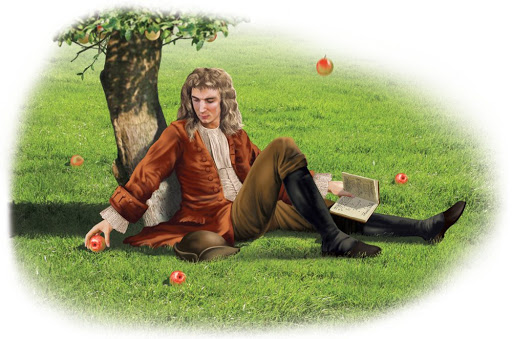I got this idea from a Nick Tasler newsletter — learned of Tasler years back when I was writing this post — and it’s potentially pretty cool.
The basic idea is that, in 1665, The Bubonic Plague was raging in England. We did a mid-1600s version of “social distance” and many university students were sent off-campus to shelter-in-place and slow the spread of Bubonic. Isaac Newton, who at the time was about 23-24, was one of these students. His time away from standard university life recharged him, creating “The Year of Wonders,” whereby he discovered differential and integral calculus, formulated a theory of universal gravitation, and experimented with optics.
In short, a lot of how we shape our physical world came from one young back having to shelter in place in the 1600s. Interesting to consider, no?
This is a little bit of the argument you sometimes hear around “UBI” — universal basic income — or even the troubling issues around automation. The theory, which I don’t completely agree with, is that if humans are spending less time on basic stuff like earning paychecks, then they can spend more time on passions and we can enter a new Renaissance. I personally think a lot of people who don’t have to work and are bolstered by government cheese would do the standard stuff around addiction, video games, Reddit, etc. Does that mean I believe in “welfare queens?” No. I think a lot of people need a jump-start and use it right. But I don’t think that happens at scale, really.
That all said, there will probably be an Isaac Newton moment out of this period. Will it be around self-driving cars? Will it be a Theranos model that actually is not a scam? Will it be something around gene-editing? Will it be something we don’t even see coming yet?
That’s actually interesting to consider — we know the negative repercussions of the pandemic, economically and socially, may last for a long bit. But what if something truly amazing and stupendous and society-altering can emerge from this?
This is not about “hustle porn” and “finding your opportunity.” It’s about the idea that real product-driven or idea-driven change might come from this. I think most of what happens in “The New Normal” will be a return to status quo — people trudging into offices, the housing market booming, etc. — but I’m curious to see if we get a Year of Wonders on the back-end here.
